An effort is underway to create and publish to www.ASIPT.org a comparative glossary of Arabic logic terms in translation. The goal is to produce a sufficient sample of Arabic-English glossaries of the technical nomenclature of Mantiq (Arabic Logic) such that current researchers can compare and discuss with an aim towards producing standardized best practices in translating Arabic Logic texts and terms.
What is Arabic Logic (Mantiq)?
The term Arabic Logic as defined by scholars Tony Street and Nadja Germann “refers to a tradition of logic rooted in the texts translated from Greek into Arabic in a movement beginning in the eighth century CE. The tradition gradually settled on a set of technical terms with which to translate and discuss the Aristotelian corpus and its associated late antique commentaries; it also came to agree on what were the major problems in the corpus which demanded resolution. Focussed at first on these problems, a continuous line of discussions has evolved and carried forward in one form or another down to today.”1
Called mantiq in Arabic, the particular tradition described above is generally referred to as Arabic Logic in academic circles and is distinct from contemporary forms of logic as developed in the modern west and subsequently translated into Arabic. As Tony Street notes, “…other traditions of logic have been conducted in Arabic but are not, on my usage, Arabic logic…The modern logic in the tradition inaugurated by Frege taught in most modern Arab universities, often in Arabic, is not Arabic logic.”2 While “Arabic Logic” emphasizes the language employed and allows for the inclusion of scholarship by non-Muslim logicians working in the discipline, Mantiq has also been called Islamic Logic as it was developed and employed towards the service of the sacred sciences such as theology and law. However, the term mantiq does not carry any semantic implications of “Arabic” or “Islamic” and either moniker is employed depending on context and opinion of the speaker.
Sourcing the Glossary
Research has been conducted to identify varying translations of Arabic Logic terms by scouring existing scholarship for glossaries, indices, and in some cases extracting Arabic Logic terms from the texts themselves. Particular focus has been thus far given to terms in works by Ibn Rushd, Ibn Sina, al-Taftazani, and al-Abhari.
Careful review of the terms is conducted, including assessment of multiple meanings. Then the side-by-side table of terms is populated appropriately. To date, the sources include works by Tony Street, Hamza Karamali, Amir Ljubovic, Wilfred Hodges, Faraz Khan, and Khaled El-Rouayheb.
Commonalities and Challenges
Some terms such as qaddiya (proposition) and shakl (figure) are very consistent across the different translations. Others, such as ‘ilm nazari, have more nuanced differences in translation; for example, the Karamali translation is “inferential knowledge” but the Ljubović is “speculative science.”
One challenge is reconciling the differences in transliteration among the works and consolidating where appropriate. For example, ensuring that ḵ is noted as kh in the glossary, which currently does not include special characters. Another challenge is discerning which meaning a particular translator intends when there are multiple meanings for a single word, as in the case of hadd, which can be translated as “definition,” “term,” or “limit.” As to be expected, context provides the necessary clues.
Living Resource
The intention is to continue augmenting the comparative glossaries to ensure ongoing comprehensiveness and relevance to the discipline of Arabic Logic. Suggestions are welcomed for additional translations that will enhance the glossary. Contact: Aaron Spevack, aspevack@law.harvard.edu
Research Team
This project is led by Dr. Aaron Spevack and is a project of the American Society of Islamic Philosophy and Theology which is housed at Brandeis University and funded by a grant from the Templeton Foundation. The Harvard Division of Continuing Education also supports a Faculty Aide position which gives students an opportunity to work collaboratively with a Harvard affiliated professor. Alison Jacques, Master’s in Religion candidate in the Harvard Extension School, helped produce and research the glossary. Justin Poe and Marwan Tayyan, ASIPT research associates worked diligently to source these glossaries. Dr. Muhammad Hozein entered the Arabic terms, and Scott Doolin connected Arabic terms to Jacques Maritain’s scholastic nomenclature. Dr. Spevack is a Visiting Scholar in Harvard’s Near Eastern Languages and Civilizations, Senior Research Associate at Brandeis University’s Near Eastern and Judaic Studies where he serves as Primary Investigator on the ASIPT project. He is also the Brandeis Muslim Chaplain in the Center for Spiritual Life and teaches courses in the Harvard Summer and Extension Schools.
